Meet the Advisory Panel
The Advisory Panel currently comprises a group of seven persons, all of whom were chosen for their understanding of the experience of being affected by leprosy.
Zoica Bakirtzief da Silva Pereira (Chair of Advisory Panel)
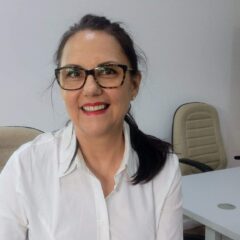 Zoica, Ph.D. in Psychology, was the principal investigator of a LRI sponsored study entitled Promoting inclusion where it matters most: building resilience in individuals and families based on evidence and participatory methods. The study was part of her post-doctoral fellowship at the Federal University of Santa Maria, Brazil.
Zoica, Ph.D. in Psychology, was the principal investigator of a LRI sponsored study entitled Promoting inclusion where it matters most: building resilience in individuals and families based on evidence and participatory methods. The study was part of her post-doctoral fellowship at the Federal University of Santa Maria, Brazil.
She was treated for Hansen’s disease in 2004 while serving as a country representative for American Leprosy Missions but has undergone re-treatment and rehabilitation surgeries in recent years. She was the country coordinator for the Participation Scale Development program and has worked with various ILEP member associations in Brazil, namely NLR, DAHW and AIFO. Zoica facilitated the establishment of several non-profit organisations and was part of the international coordination committee that founded IDEA International in 1994. She also led the establishment of three inclusive vocational rehabilitation associations for persons with disabilities in the states of Sao Paulo and Bahia. In recognition of her innovative program for persons with disabilities, she was selected for the Ashoka Venture Fellowship and the W.K. Kellogg Foundation International Leadership Alliance.
Despite recently shifting from the non-profit sector to a university teaching role, she continues to be closely involved with Hansen’s disease through a Leprosy Research Initiative funded project, NLR’s PEP++ Scientific Steering Committee, reviewing articles for Leprosy Review, and serving as director of IDEA International.
Mathias Duck
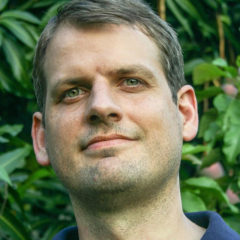 Mathias is a person affected by Hansen’s disease and is personally and professionally committed to involving persons affected in the fight against leprosy and its stigma. He is from Paraguay and his wife, Cynthia, is a nurse. They have been married for over 15 years and have three children: Gabo, Nico and Alana.
Mathias is a person affected by Hansen’s disease and is personally and professionally committed to involving persons affected in the fight against leprosy and its stigma. He is from Paraguay and his wife, Cynthia, is a nurse. They have been married for over 15 years and have three children: Gabo, Nico and Alana.
Mathias was Pastor/Chaplain at a reference hospital for leprosy in Paraguay from 2010 until 2015. In October 2010, he was diagnosed with leprosy and completed MDT. In the last few years he has focused more on improving leprosy services by raising the voice and the participation of people affected in decision making and in the delivery of these services. He is currently working as Global Advocacy Lead at The Leprosy Mission International.
Papa Mamadou Diagne
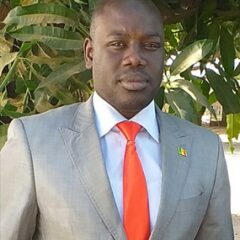 Papa Mamadou was diagnosed with leprosy in his youth and has since dedicated his life to ensuring the rights of persons affected by leprosy. He is committed to promoting the early detection of leprosy and other NTDs, and to facilitating the social inclusion of people affected by leprosy and their families, as well as the educational inclusion of children affected by leprosy.
Papa Mamadou was diagnosed with leprosy in his youth and has since dedicated his life to ensuring the rights of persons affected by leprosy. He is committed to promoting the early detection of leprosy and other NTDs, and to facilitating the social inclusion of people affected by leprosy and their families, as well as the educational inclusion of children affected by leprosy.
Papa Mamadou is the president of the Senegalese Association for the Fight against Leprosy and NTDs (ASCL/MTN). He is also a member of the monitoring committee for operational research on post-exposure prophylaxis, the national committee for coordination of leprosy and NTD activities, and the steering committee of the Senegalese Federation of Associations of Persons with Disabilities (FSAPH).
Trained in the field of social communication, advocacy, social marketing, personal development and community-based rehabilitation, he has often played a vital intermediary role between persons affected by leprosy, local communities, national health authorities, ILEP members, and other civil society organisations in Senegal, to ensure that persons affected receive appropriate care, participate in decisions and access opportunities for economic and social development.
Rachna Kumari
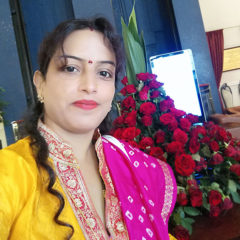 Rachna works with the Lepra Society in Bihar, India. She has an advanced diploma in Health Assistance and Nursing and she is studying for a BA in sociology.
Rachna works with the Lepra Society in Bihar, India. She has an advanced diploma in Health Assistance and Nursing and she is studying for a BA in sociology.
Rachna lives with her parents and two children. She was married at 18 and had two children by 21. She was 24 when she became aware of leprosy when darks spots appeared on her face. Her husband and his family felt justified in forcing her out of her home. Although her parents came to the rescue it was thanks to Lepra that she received proper treatment for leprosy and started to recover. Lepra encouraged Rachna to become a community ambassador to inspire others affected by leprosy, and has sponsored her further education.
Rachna’s life purpose is to help other people with leprosy. She does this every day with rare patience and compassion, teaching people how to care for themselves through a set of practices. She is also a key member of the State Forum of leprosy affected people in Bihar through which she helps raise awareness in leprosy colonies and advocates for their rights to a life of dignity. This group recently won the highest disability pension in the country for people with leprosy-related disabilities and are now fighting for land rights so that people with leprosy are not unfairly evicted.
In 2014, Rachna was cast in Al Jazeera’s documentary on leprosy called Ancient Enemy in their Lifelines series. She also appeared as a Lifelines Health Hero, and she appears on the video clip here. She speaks on behalf of persons affected by leprosy at a number of international events. These have included a meeting in China organised by the World Health Organization where she represented people affected by leprosy in India; plenary speaker at the NGO NTD Network (NNN) conference in Ethiopia in 2018; key speaker at a leprosy side event during the Human Rights Council in Switzerland in 2019; and a participant in the Global Forum of People’s Organisations on Hansen’s disease in the Philippines in 2019.
In Rachna’s words, “my dream is for India and the world to be free from leprosy. Every time I come across someone affected by leprosy the first thing I tell them is not to feel ashamed of their condition and hold their heads high. There is no need to have fear.”
Lilibeth Evarestus Nwakaego
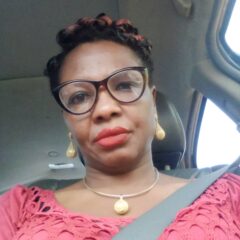 Lilibeth was brought up and went to school in Imo and Enugu states in south-eastern Nigeria, and later studied law at the University of Lagos. After a year of practical training she was called to the Nigerian Bar as solicitor and advocate of the Supreme Court. She participated in the one-year mandatory national youth service corps programme, serving as a litigation officer at local government level. After an internship and further training in criminal and civil law, she registered her own law firm where she practises as an attorney-at-law.
Lilibeth was brought up and went to school in Imo and Enugu states in south-eastern Nigeria, and later studied law at the University of Lagos. After a year of practical training she was called to the Nigerian Bar as solicitor and advocate of the Supreme Court. She participated in the one-year mandatory national youth service corps programme, serving as a litigation officer at local government level. After an internship and further training in criminal and civil law, she registered her own law firm where she practises as an attorney-at-law.
In addition to being a member of a range of legal associations, including the Bar Association and the Association of Lawyers with Disabilities, she is a certified mediator at the Lagos State alternative dispute resolution board. Lilibeth is a human rights activist, a mother and an open-minded person. She is the national coordinator of Purple Hope Initiative Nigeria, a non-profit association of women and children affected by Hansen’s disease and other NTDs, and a member of Red Aid Nigeria, a sister organisation of the German Leprosy Relief Association.
Maya Ranavare
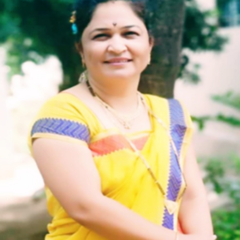 Maya was born and raised in a leprosy colony. She was diagnosed with leprosy at the age of six and struggled for survival and education. The discrimination and isolation she experienced had a great impact on her life and resulted in her commitment to working for the rights of persons affected by leprosy, their empowerment and welfare.
Maya was born and raised in a leprosy colony. She was diagnosed with leprosy at the age of six and struggled for survival and education. The discrimination and isolation she experienced had a great impact on her life and resulted in her commitment to working for the rights of persons affected by leprosy, their empowerment and welfare.
Maya is the Chair of Sakshi Vikas Sanstha, Treasurer of APAL, State Coordinator of the Human Rights Commission, a key member of the District Leprosy Coordination Committee and an advisor for various livelihood projects in India. She has contributed to the Human Right Commission reviewing and ruling many cases in favour of persons affected, as well as in obtaining a special maintenance allowance from Municipal Corporations for more than 3,000 people affected by leprosy.
She has received various rewards, including Sasakawa India Leprosy Foundation’s ‘Raising to Dignity Award’ and R.K. Mehta Charitable Trust’s ‘Social Service Award’. In 2014, she was cast in a documentary called “The unsung Hero” Meet Maya, a remarkable person. Maya’s life mission is to work towards a world free from leprosy, stigma and discrimination.
Amar Timalsina
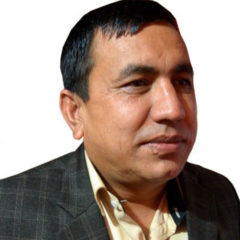 Amar, from a far-flung part of Nepal, caught Hansen’s disease at an early age. The shackles of misery were instigated after that. His society along with the school educators did not like his being there. When his school educators promised to pass him in the examination without attending the classes, he thought he was favoured. In retrospect, he sees how bigoted the educators were. This is a crucial motive for his current involvement in the education sector – to make sure that other children do not need to submit to the circumstances that he had to. To add, it was due to the Hansen’s disease that Amar had to face the inconceivable social segregation, including divorce.
Amar, from a far-flung part of Nepal, caught Hansen’s disease at an early age. The shackles of misery were instigated after that. His society along with the school educators did not like his being there. When his school educators promised to pass him in the examination without attending the classes, he thought he was favoured. In retrospect, he sees how bigoted the educators were. This is a crucial motive for his current involvement in the education sector – to make sure that other children do not need to submit to the circumstances that he had to. To add, it was due to the Hansen’s disease that Amar had to face the inconceivable social segregation, including divorce.
After he was cured, Amar commenced running a school that admits students from grade one to 10. He has been a Principal of the school for the past 20 years. He is also the president of IDEA Nepal and Global Network Coordinator of IDEA International, and has plenty of speaking sessions among the people affected by Hansen’s disease. His single drive in the speaking sessions is to make the communities feel that Hansen’s disease is curable, and that the disgrace and the chauvinistic attitudes towards the affected people are venomous, ridiculous and against the humanity at large. In his forties, Amar finds himself more unshakable to end Hansen’s disease and the people’s negative attitudes towards people affected by it.